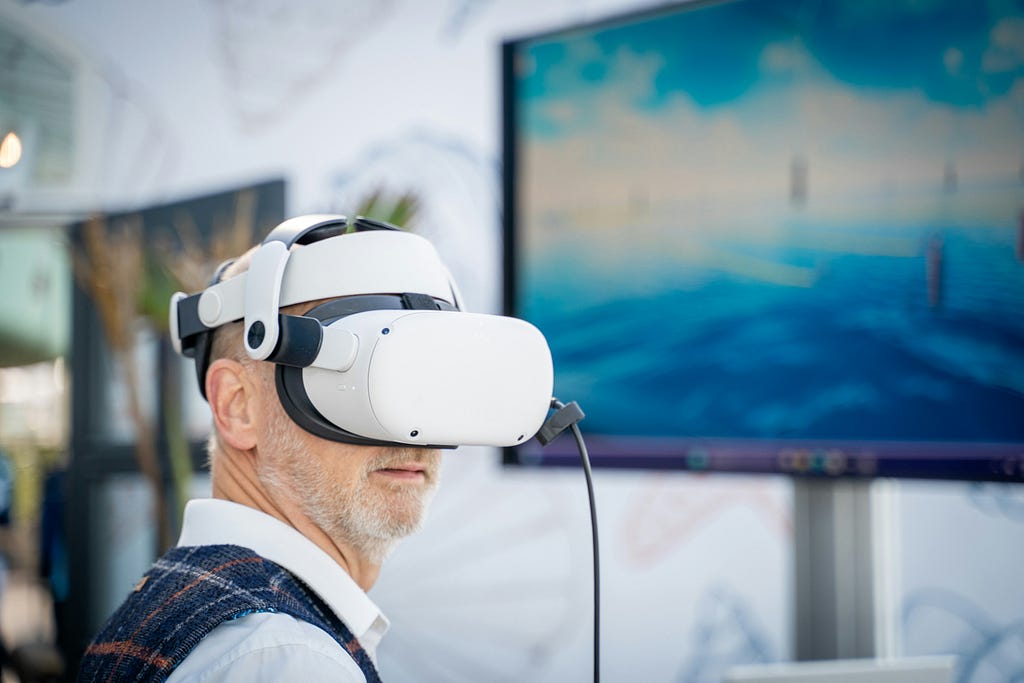Why Has the Metaverse Failed to Deliver on Its 2021 Hype?
Was it in 2021 that Metaverse got so much traction? That we all thought we’ll be putting on some 3D screens by 2025. GameFi in Web3 gave us the hopium.

Metaverse was hyped as the next big thing in technology. Even Facebook changed their parent name to Meta. I thought the sci-fi movies like Ready Player One would be interesting to be real. The big promises from companies like Meta gave it some extra fuel, it’s easy to imagine a world where we’re all plugged into a seamless virtual reality.
But it's 2025 and Metaverse still remain more of fantasy than reality. Worse is it will likely remain a fantasy throughout this decade.
1. The tech just Isn’t there YetDidn't that metaverse trend in same time with 5G? 5G was around, immersive headsets were ready, NFTs, we thought that's all we needed to make the metaverse.
But the Metaverse requires more. Advancement in multiple technologies working together seamlessly. Ultra-low-latency networks, hyper-realistic graphics, affordable and comfortable VR/AR hardware, and AI-driven environments that feel alive. Though we have 5G, powerful GPUs, and devices like the Oculus Quest or Apple Vision Pros but they are not even a completed picture, all of those are just pieces.
 Photo by Paul Einerhand on Unsplash
Photo by Paul Einerhand on UnsplashI've not used one before but the current VR headsets are not perfect yet. They allegedly causes motion sickness after prolonged use. Their battery life is limited, and they're very expersive. For the Metaverse to go mainstream, headsets need to be very light in weight, affordable for the average person, and comfortable for hours of use. At least they should become like phones —cheap, comon and useable for hours. We’re likely more than a decade away from that level of miniaturization and mass production.
Another one of the issues is Network Lag. A truly immersive Metaverse requires near-zero latency. Even 5G struggles with this in crowded areas, and 6G probably won’t be widely available by 2030.
How do you have a real-time conversation in a virtual world if your avatar stutters every few seconds?
Computing Power is also as important for metaverse as it is for AI. A real metaverse as it is defined has to be able to render photorealistic worlds in real-time for millions of users which demands insane computational resources. Cloud computing and edge AI are improving, but scaling this to billions of devices will require billion of dollars. Not only money, the amount of energy that'll be required to power such is insane. Not even proof of work blockchains can compete.
2. The Social and Cultural GapTechnology aside, people aren’t clamoring for the Metaverse the way they did for social media. And there is no demand for headsets like there is for phones. That's because metaverse or VR headsets are not solving a clear, universal problem.
Smartphones took off because they combined communication, entertainment, and productivity in our pockets. The Metaverse’s use case is still vague. Surely great for gaming but platforms like Roblox and Fortnite already offer virtual worlds without needing a headset. Also good for remote work but Zoom and Slack work fine for us. It's also great for Socializing but Most people still prefer already existing platforms.
 Photo by Benjaminrobyn Jespersen on Unsplash
Photo by Benjaminrobyn Jespersen on UnsplashThe Metaverse isn't solving any hot issue, it's only amplifying an existing technology.
After years of screen addiction and Zoom burnout, the idea of spending more time in a virtual world feels exhausting to many people. Metaverse people (advocates, builders and whatever) assumes we all want to escape reality, but plenty of us are craving real-world connection instead.
What's even more interesting? The tech giants that are pushing the Metaverse thing (like Meta) have spotty track records on data privacy. A fully immersive digital world means even more tracking. We use phones to access their platforms and they listen to us, tractk our activities, even watch us through phone cameras. What would the do with immersive headsets? Get in our brain. At least many are already thinking about that. Your movements, gaze, even emotions. Although metaverse wouldn't really work out with the Blockchain and Blockchain can mitigate this.
3. No fair economic model yetBuilding the Metaverse is crazily expensive, and the return on investment isn’t clear. Meta has poured over $50 billion into its Reality Labs division since 2019, with little to show beyond niche VR adoption. Other companies, like Microsoft and Google, are scaling back their AR/VR ambitions due to high costs and low consumer demand.
 Photo by Redd Francisco on Unsplash
Photo by Redd Francisco on UnsplashIf the Metaverse is free or cheap, it’ll likely be ad-driven, which will make it a dystopian billboard fest. If it’s subscription-based, it'll be for a very few percentage of humans. Either way, the economics don’t add up yet.
The Metaverse depends on user-generated content (like virtual worlds built by creators, minecraft-like). But platforms like Roblox already show how hard it is for creators to earn a living.
It’s About Evolution, Not RevolutionThe Metaverse isn’t a single destination we’ll arrive at by 2030. It’s more like the internet—a gradual evolution of tools and experiences. We’re already in a proto-Metaverse era with platforms like Zoom’s virtual backgrounds, Oculus and co. But the fully immersive, Ready player one style vision is decades away, not even one.
The hype can distract us from real progress. Instead of chasing a sci-fi dream, we should focus on practical applications. What about better AR for education?, VR for therapy?, hybrid work tools that blend physical and digital seamlessly. Niche VR platforms will evolve and get better before we have the fully immersive one. Those are stepping stones that are achievable by 2030 and could lay the groundwork for something greater.
Why Has the Metaverse Failed to Deliver on Its 2021 Hype? was originally published in Coinmonks on Medium, where people are continuing the conversation by highlighting and responding to this story.
